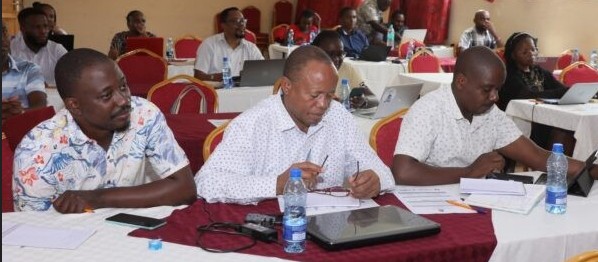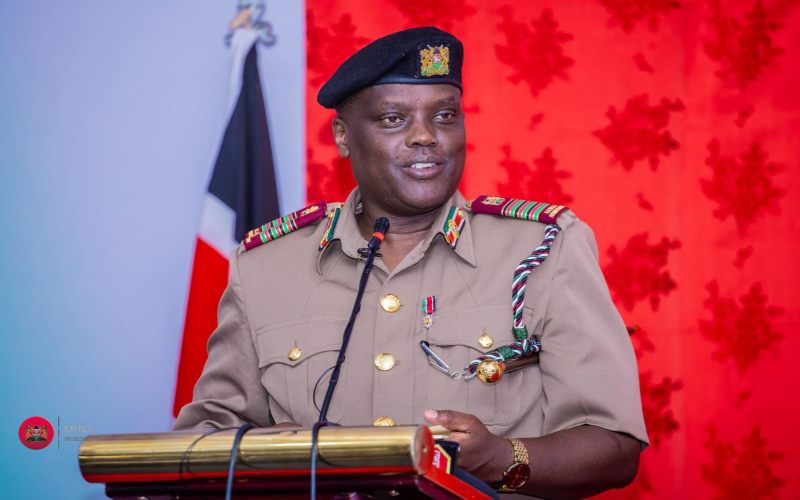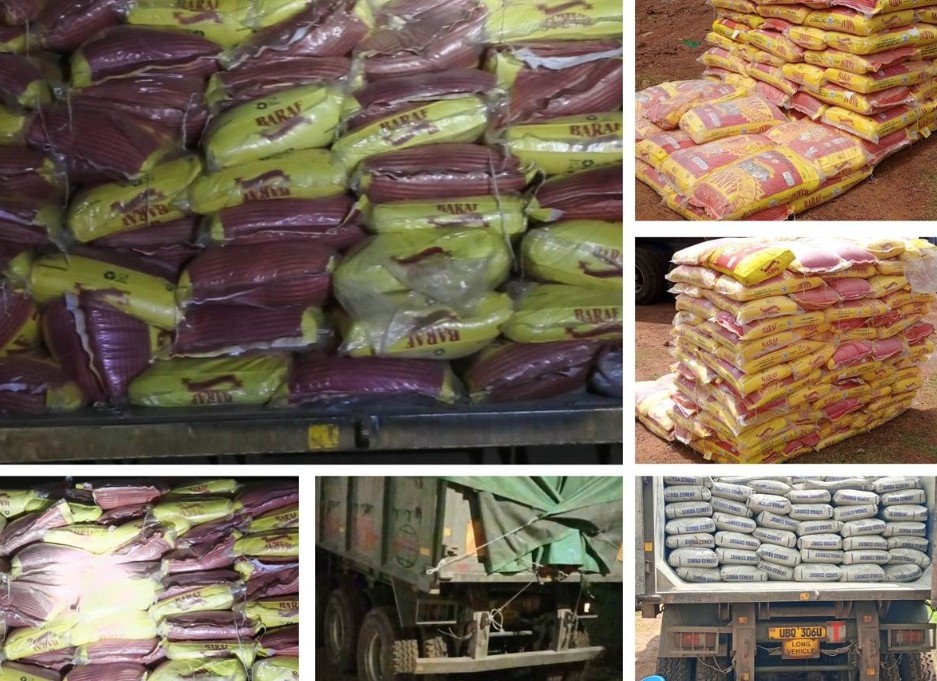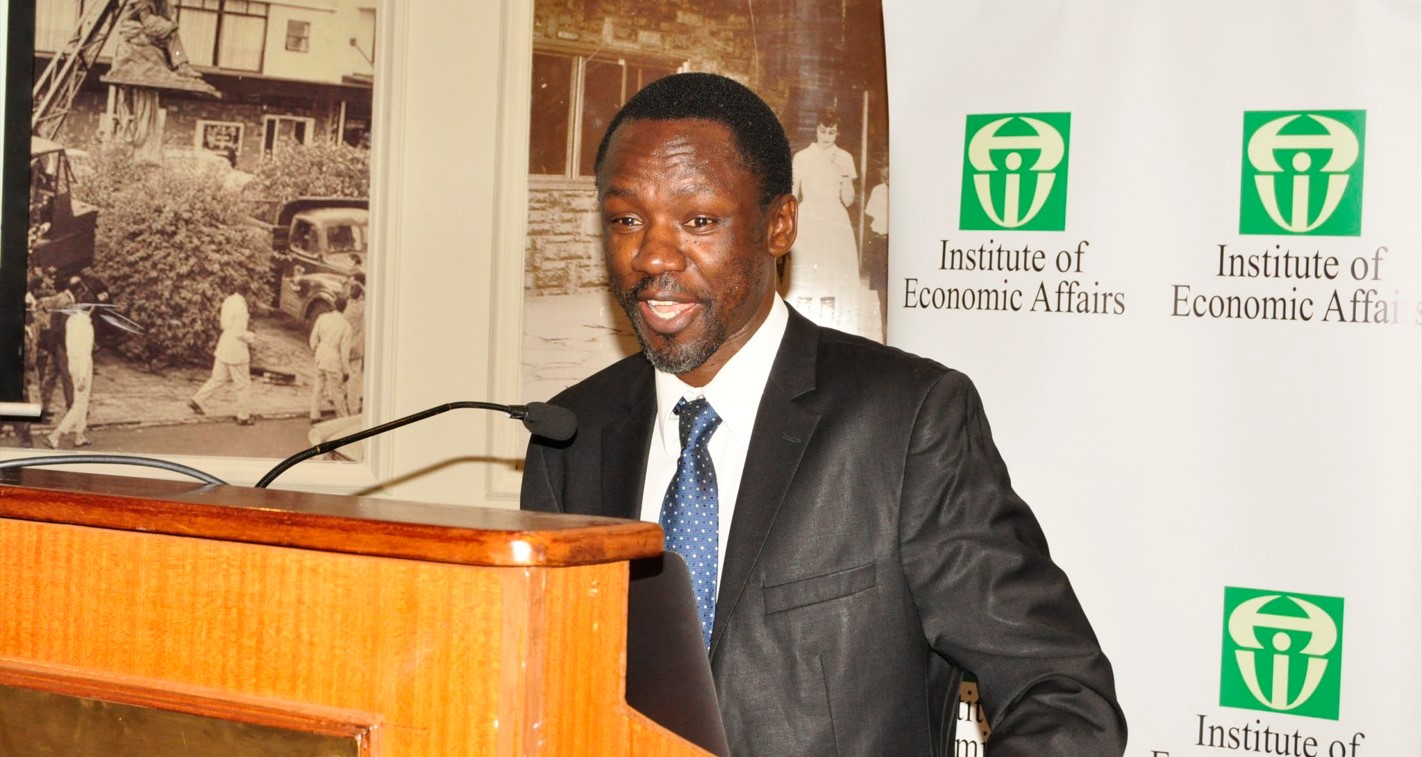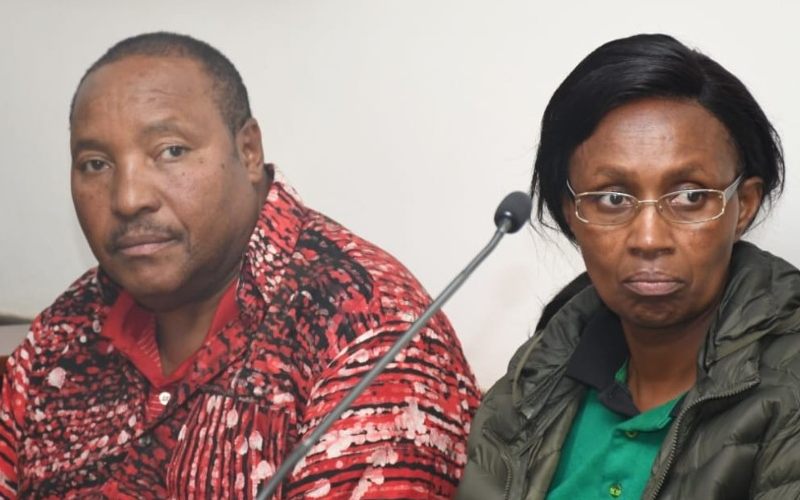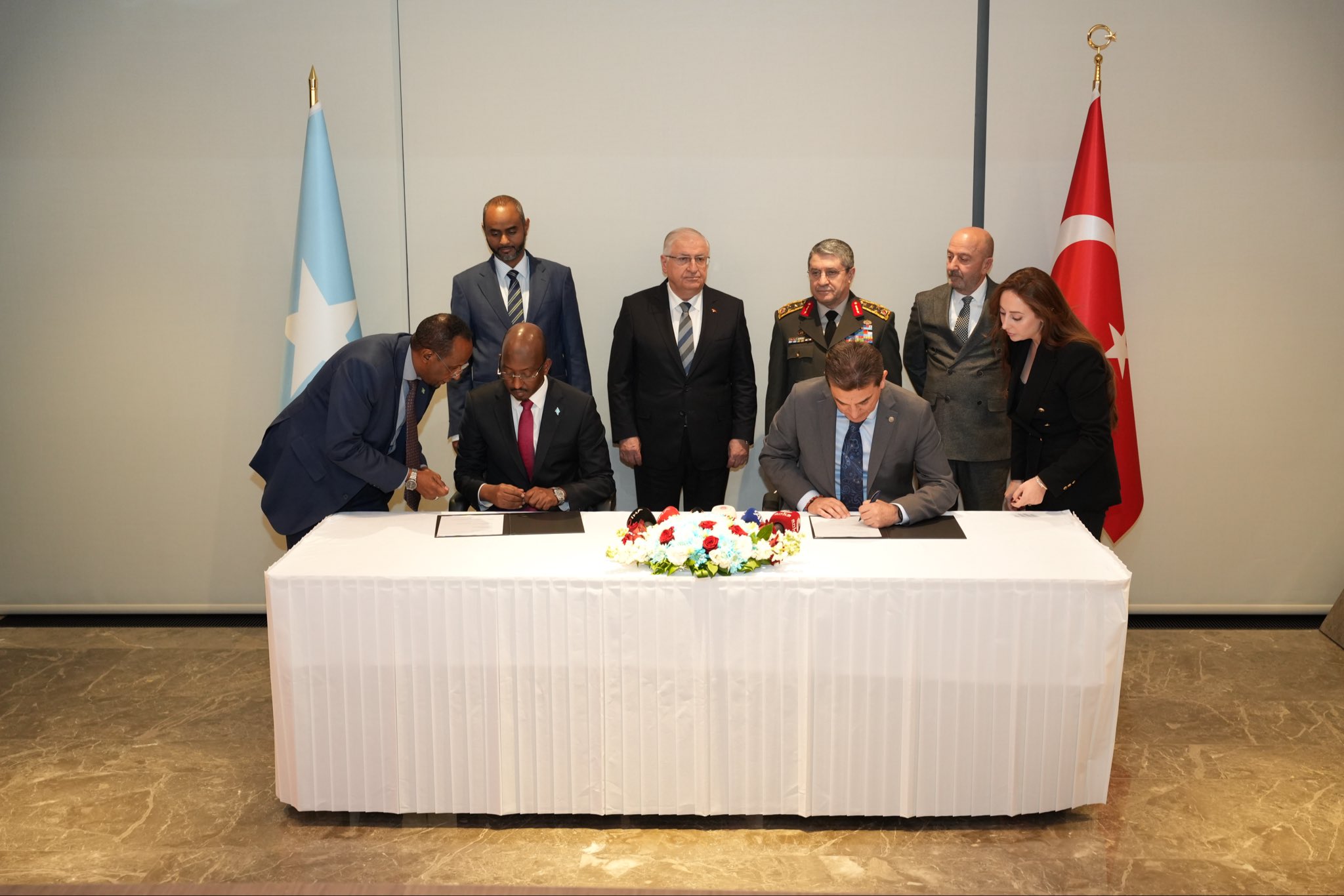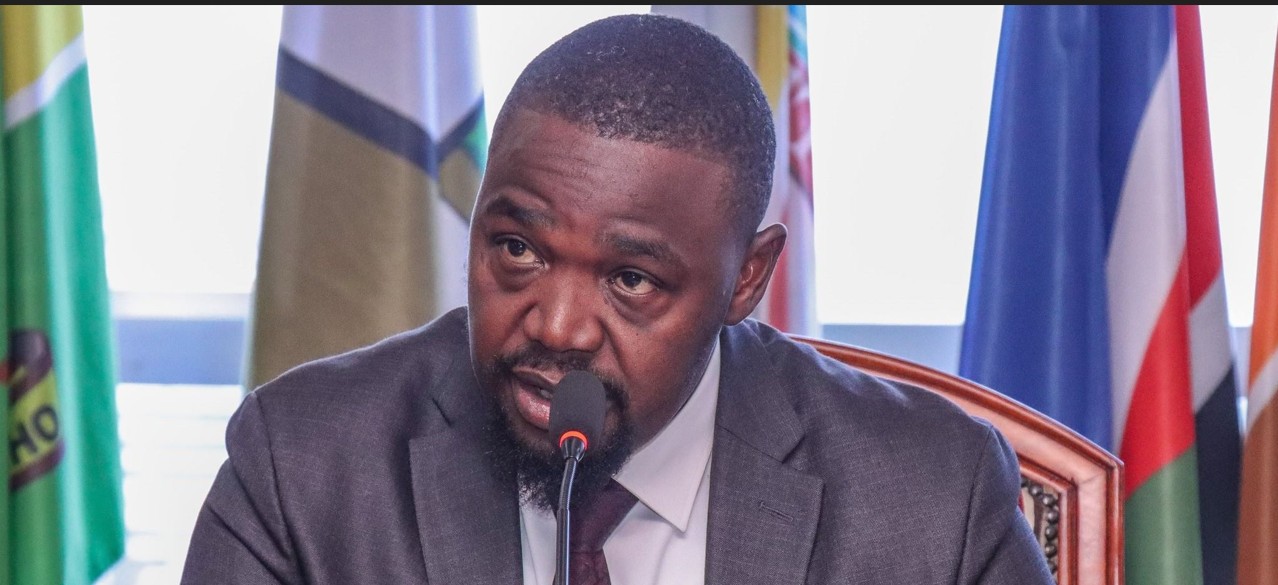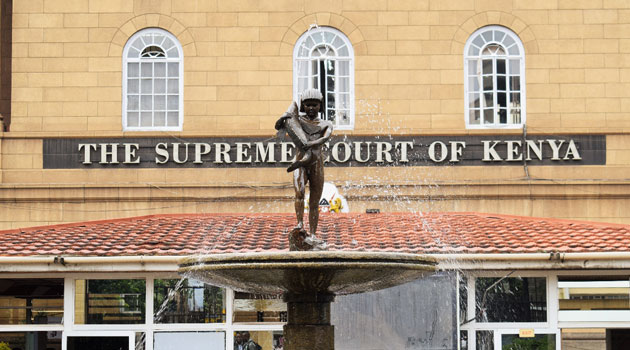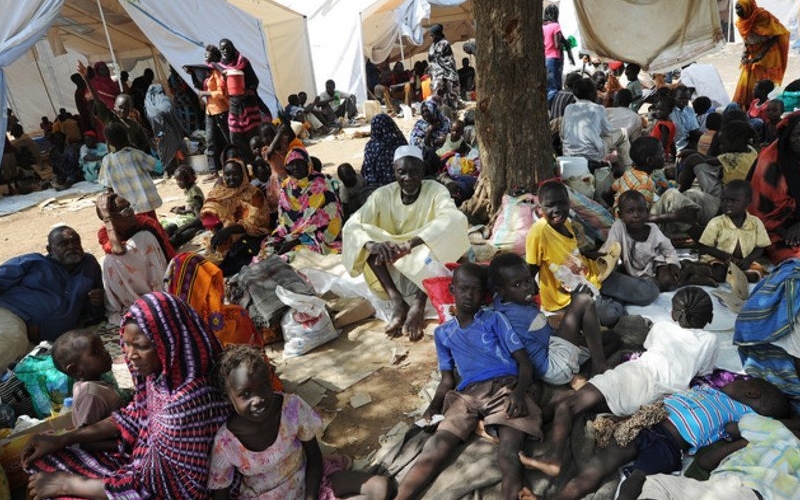Gallant men in Kwale join push to end myths surrounding fistula
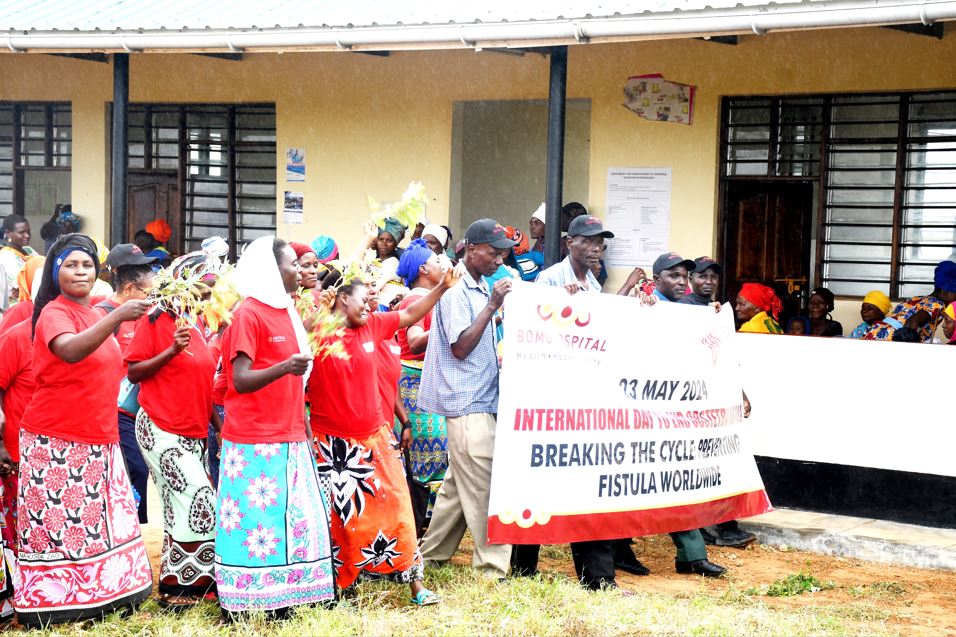
Due to pervasive myths, women afflicted with this condition are often hidden away by their families who believe they are bewitched or cursed.
Walking into the interior villages of Samburu Sub-County in Kwale County, you encounter groups of men sitting in circles, deep in conversation. They are discussing about the effects of fistula on women.
Patrick Magongo, one of them, shares his personal, experience, revealing that discussing such matters was once taboo.
More To Read
- Relief for patients as Kwale doctors return to work after striking deal with county government
- Taita Taveta GBV survivors speak out as county grapples with alarming rise in cases
- Kibra community health promoters partner with varsity to improve healthcare delivery
- Universities urged to create gender resource centres amid rising GBV cases
- New hospital brings hope to women battling obstetric fistula in Kilifi
- Kilifi healthcare professionals embark on Dubai training programme to enhance skills development
“During intimacy, I often heard my wife crying and misinterpreted her pain as a sign of infidelity. It was not until I saw her soiled clothes that I realised something was seriously wrong,” he says.
Magongo is from Vinyunduni village in one of the remote regions of Kwale County where cultural beliefs and stigma have left many women suffering in silence with obstetric fistula, a condition that can be treated.
This serious childbirth injury, which results in a hole between the birth canal and the bladder or rectum, causes uncontrollable leakage of urine or faeces, something Magongo revealed happened to his wife.
“My wife and I started our married life well. However, this changed after giving birth to four children. During intimacy, she would cry. This troubled me, and I started thinking she might have been unfaithful. But through open conversations at home, I discovered she had a medical issue. I did not know it was a fistula,” says Magongo.
Magongo says due to pervasive myths, women afflicted with this condition are often hidden away by their families, who believe they are bewitched or cursed. Some are also neglected by their husbands. This, he says, leads to immense suffering and prevents women from seeking treatment.
He adds that in many instances, a woman is not supposed to go for treatment without her partner's permission.
But this was his past life.
Stigma
The stigma surrounding fistula meant that Magongo and his wife had no idea what was happening until they encountered the outreach programmes run by the Fistula Foundation and Bomu Hospital.
It is through such programmes that men have been sensitised and are in return empowering their wives to seek treatment as soon as possible.
“Thanks to their intervention, my wife received the treatment she needed and our lives returned to normal. These people saved us. Men need to support their wives and be compassionate,” he says.
After his wife healed, they began helping others facing similar challenges.
“She now leads a team of over 100 women who have been treated for fistula and are sharing their testimonies of healing. This condition is treatable, and we should abandon the belief that prayers alone can cure it. It is like a punctured tyre that needs to be patched for it to be fixed,” Magongo says.
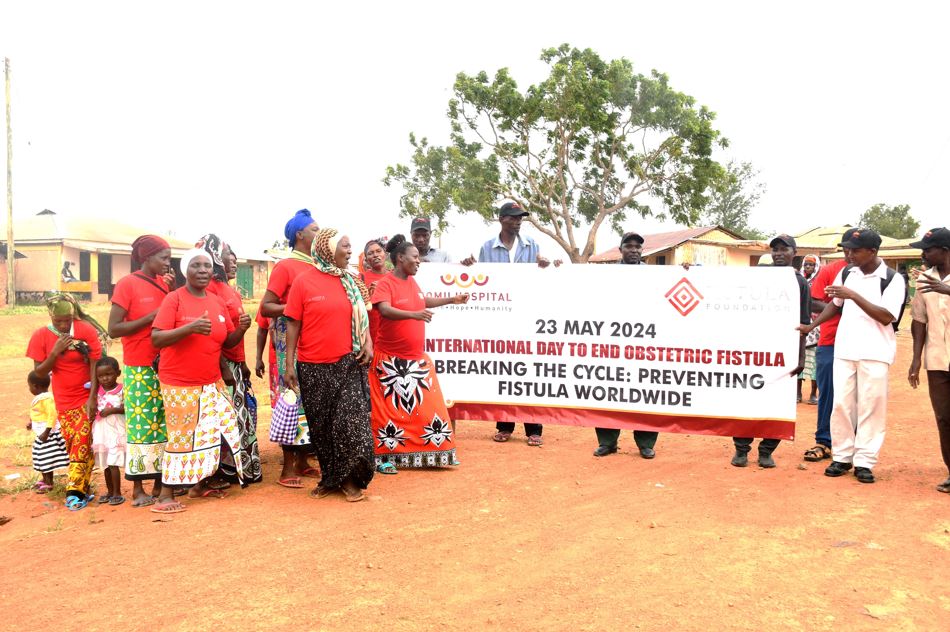 Residents mark World Fistula Day in Kwale County on May 23, 2024. (Photo: Farhiya Hussein)
Residents mark World Fistula Day in Kwale County on May 23, 2024. (Photo: Farhiya Hussein)
Also in the group is Mvurya Nguma, who narrates how he one day received a call from his wife, Chizi Mkalandegwa, who was suffering from fistula.
He had also neglected his wife, believing that she was bewitched.
When his wife called him, she informed him that there was a team from Bomu Hospital that was offering treatment to women with her condition.
“I did not know my wife had a fistula. I had assumed that my wife was unfaithful and did not want to have sex with me. It was after several conversations with her that we agreed we would go to Mombasa to seek treatment at Bomu Hospital,” he explains.
They took the two-hour journey of two hours covering 52 kilometres to seek a solution to the problem.
Mkalandegwa successfully underwent an operation and today she is a community health promoter acting as a link between the community and the Bomu Hospital. She had been living with a fistula since she gave birth to her first child 13 years ago.
"I am grateful because the condition used to trouble me a lot. I used to feel cold around the birth canal area. Also, during childbirth, I would feel pain, and my water would break before the baby came out. I had no idea that it was fistula,” she says.
She encountered issues within her household too
“My husband used to accuse me of infidelity, unaware of my condition. I underwent treatment and have since recovered. I even had a successful pregnancy and childbirth through caesarean section,” says Mkalandegwa.
Another fistula survivor, Agnes Ega, says the lack of knowledge and support can be devastating.
Community health screening
After suffering for years and bearing several children, she finally learned about fistula during a community health screening.
“I was married at 20 and had my first child the same year. After a difficult delivery, I began experiencing symptoms like urinary or faecal incontinence, chronic vaginal discharge, and pain in the pelvic area or lower back but I did not understand what was happening. After each childbirth, my condition worsened until my sixth child when I developed a severe tear in the perineum during childbirth. I could not visit people or participate in community activities due to the constant leakage and discomfort.”
She sought help only after a chance encounter with healthcare providers at a cancer screening event.
“I didn't even know what a fistula was. But Bomu Hospital offered free treatment, and that changed my life,” Ega says.
Initially terrified of the proposed surgical repair, it was only after her husband's encouragement that she proceeded with the treatment.
“After the surgery, I felt like a new person. My husband, who used to avoid me, came back. Now, I educate other women about fistula,” she says.
Poverty and lack of education are significant barriers to accessing fistula treatment for women in the Coast region.
In Kwale County, misconceptions linking fistula to witchcraft and curses prevent women from seeking medical help.
According to Kabuka Ngao, a public health nurse at Samburu Sub-County Hospital, some people believe fistula is untreatable, making them hide affected women at home.
Ngao, also a reproductive health coordinator, says the Fistula Foundation and Bomu Hospital have been striving to change community perceptions through outreach programmes.
Cultural norms also endanger women with fistula as they are often unable to make medical decisions even when their lives are at risk.
“A woman cannot decide on her own, even if it means saving her life. Everything is decided by a man. Our outreach programmes have been crucial in educating men about the importance of allowing their wives to access treatment,” says Ngao.
Ngao says they formed a men-focused group to raise awareness and educate the community about allowing women to access treatment, especially for conditions like fistula.
Their efforts have helped change the stigma around fistula by making men aware that it is not a woman's fault.
Safina Ramadhan, a fistula coordinator at Bomu Hospital, says that many women with fistula remain at home, suffering, due to a lack of information on treatment.
“We have reached over 500 women across six counties. Many women suffer at home due to a lack of information and fear of being blamed by their partners. Our community sensitisation programmes aim to change this mindset,” Safina says.
Top Stories Today
